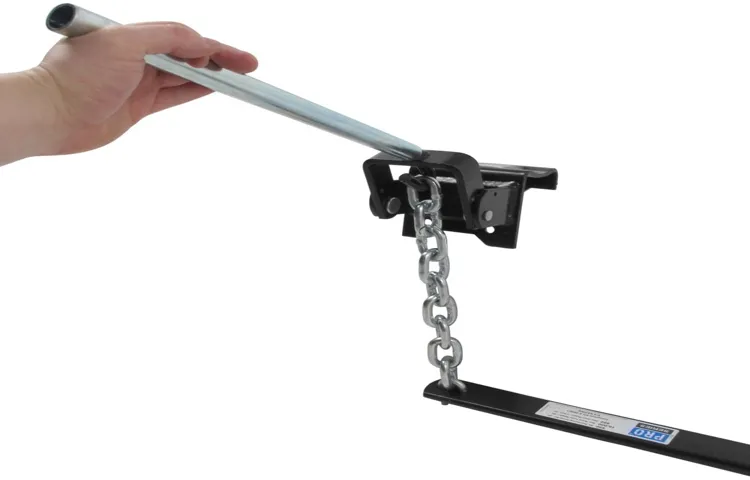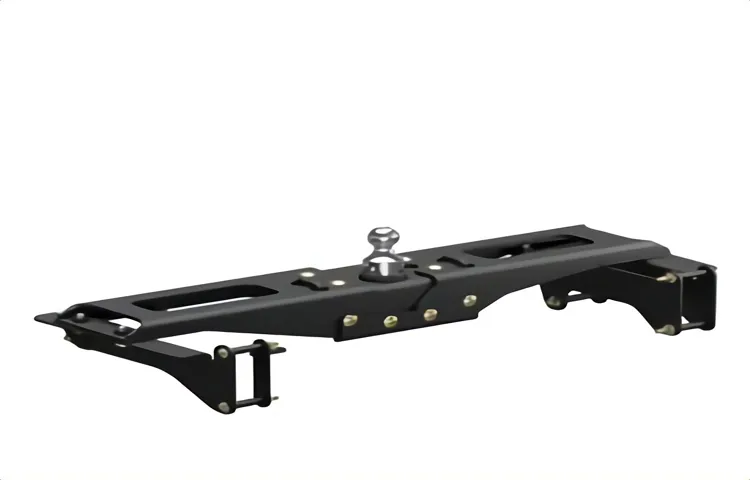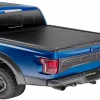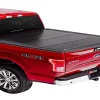Welcome to our blog! Today, we’re diving into the world of equalizer hitches. If you’re wondering what they are and how they can benefit you, we’ve got you covered. Equalizer hitches are a type of towing accessory that helps distribute the weight of a trailer more evenly across the towing vehicle.
It’s common knowledge that towing a heavy load can put stress on your vehicle and affect its handling. That’s where equalizer hitches come in. Think of an equalizer hitch as a superhero cape for your towing adventures.
It swoops in to save the day by providing stability, control, and a smoother ride. By evenly distributing the weight of your trailer, it can reduce sway and fishtailing, making your towing experience safer and less nerve-wracking. But how exactly do equalizer hitches work? Picture a tightrope walker gracefully balancing on a thin wire.
To maintain balance, they use a long pole, extending it to one side when they lean too much in the opposite direction. Similarly, equalizer hitches use torsion bars to help balance the weight of your trailer. When you encounter bumps or uneven road surfaces, these torsion bars act as springs, absorbing the impact and transferring it to the towing vehicle.
This prevents your trailer from jerking or bouncing uncontrollably, giving you more control over your entire setup. Now you may be wondering, “Do I really need an equalizer hitch?” Well, that depends on various factors such as the weight of your trailer and your towing vehicle’s capabilities. If you’re towing a larger, heavier trailer, an equalizer hitch can significantly improve your towing experience.
Whether you’re planning a road trip with your RV or are regularly hauling heavy cargo, an equalizer hitch can be a game-changer. It’s an investment that provides peace of mind, safety, and smoother travels. In our upcoming blog posts, we’ll explore different types of equalizer hitches, their installation process, and how to choose the right one for your towing needs.
Table of Contents
How Equalizer Hitches Work
Are equalizer hitches worth it? If you’re towing a heavy load, the answer is a resounding yes. Equalizer hitches, also known as weight distribution hitches, are devices that distribute the weight of a trailer evenly between the tow vehicle’s axles. This helps to level the vehicle and improve stability while towing.
Without an equalizer hitch, the weight of the trailer can cause the tow vehicle’s rear end to sag, which can lead to poor handling, reduced braking ability, and increased tire wear. By evenly distributing the weight, equalizer hitches can greatly improve the towing experience and make it safer for both the driver and other road users. So, if you’re planning on towing a heavy load, investing in an equalizer hitch is definitely worth it.
Weight Distribution
Weight distribution is a crucial factor in towing, especially when it comes to maintaining stability and control on the road. One popular solution for achieving proper weight distribution is through the use of equalizer hitches. But how do these hitches work, and why are they necessary? An equalizer hitch is designed to evenly distribute the weight of a trailer between the towing vehicle and the trailer’s axles.
This helps to balance the load, reducing the strain on the back of the towing vehicle and improving overall control and stability. So how does it actually work? Well, an equalizer hitch works by leveraging a combination of weight distribution and sway control technologies. Most equalizer hitches have a spring bar system that spans across the hitch assembly.
These spring bars are attached to the trailer’s frame, creating a bridge between the towing vehicle and the trailer. When the trailer is connected to the towing vehicle, the weight of the trailer presses down on the hitch, compressing the spring bars. This compression evenly distributes the weight, transferring some of the load from the back of the towing vehicle to the front axle.
This helps to level out the vehicle and improve steering and braking control. In addition to weight distribution, many equalizer hitches also incorporate sway control mechanisms. Towing a trailer can create a side-to-side movement known as sway, which can be dangerous and difficult to control.
Sway control mechanisms, such as friction sway control or built-in sway control, work to counteract this motion by applying resistance to the sway, keeping the trailer in line with the towing vehicle. All in all, equalizer hitches play a vital role in ensuring safe and stable towing experiences. By properly distributing the weight and controlling sway, these hitches make towing easier and safer for both the driver and those around them.
So, the next time you hit the road with a trailer in tow, make sure to consider using an equalizer hitch for a smoother and more controlled ride.

Sway Control
equalizer hitches, sway control, towing safety, weight distribution, trailer sway, towing experience, hitching system, towing efficiency, vehicle stability, hitch components, road safety, towing performance
Benefits of Using Equalizer Hitches
If you’re wondering whether equalizer hitches are worth it, the answer is a resounding yes. Equalizer hitches offer several benefits that make them a valuable investment for towing enthusiasts. First and foremost, these hitches provide superior weight distribution, ensuring that the load is evenly distributed between the tow vehicle and trailer.
This helps to reduce sway and improve overall stability, making for a safer and more comfortable towing experience. Additionally, equalizer hitches can also help to minimize the wear and tear on your vehicle and trailer by reducing the strain on the suspension and minimizing the risk of damage caused by excessive bouncing and bouncing. Overall, equalizer hitches offer a range of advantages that make them well worth the investment for anyone who regularly tows heavy loads.
Improved Towing Stability
Equalizer hitches are an essential tool for improving towing stability and creating a safer traveling experience. When towing a heavy trailer, it’s crucial to distribute the weight evenly across both the tow vehicle and the trailer. Uneven weight distribution can cause the trailer to sway or fishtail, making it difficult to control and increasing the risk of accidents.
By using an equalizer hitch, you can effectively distribute the weight between the tow vehicle and the trailer, ensuring a more stable and secure towing experience. The hitch works by using tensioned bars that connect the trailer to the tow vehicle’s frame, reducing the amount of weight placed on the rear axle of the tow vehicle. This helps to evenly distribute the weight between the front and rear axles of the tow vehicle and the axles of the trailer.
One of the main benefits of using an equalizer hitch is improved towing stability. The tensioned bars of the hitch help to minimize the side-to-side movement of the trailer, reducing the risk of swaying or fishtailing. This is especially important when towing in windy conditions or when passing large trucks on the highway.
The increased stability provided by the equalizer hitch allows for better control over the towing vehicle, making it easier to maneuver and reducing driver fatigue. In addition to improved towing stability, equalizer hitches also offer other benefits. They can help to reduce wear and tear on the tow vehicle and the trailer, as the weight is distributed more evenly.
This can lead to a longer lifespan for both vehicles and can save you money on repairs and maintenance in the long run. Equalizer hitches also provide a smoother and more comfortable ride for both the driver and any passengers in the tow vehicle, as they help to minimize the bouncing and jerking motion that can occur when towing a heavy load. Overall, using an equalizer hitch is an effective way to improve towing stability and create a safer and more enjoyable towing experience.
Whether you’re towing a boat, a camper, or any other heavy load, investing in an equalizer hitch is a smart decision that can provide peace of mind on the road. So, why take the risk when you can easily enhance your towing experience with the help of an equalizer hitch?
Increased Weight Capacity
equalizer hitches, increased weight capacity
Reduced Sway and Oscillation
equalizer hitches, reduced sway and oscillation, benefits of using equalizer hitches. An equalizer hitch is a fantastic tool for towing heavy loads, especially if you’re dealing with a lot of sway and oscillation. One of the major benefits of using an equalizer hitch is that it greatly reduces the amount of sway and oscillation you may experience when towing a trailer or other heavy load.
Sway and oscillation can make your towing experience not only uncomfortable but also dangerous. It can cause your vehicle to become unstable, making it difficult to control and increasing the risk of accidents. With an equalizer hitch, however, you can minimize these issues and enjoy a smoother and more controlled towing experience.
The hitch redistributes the weight of the load evenly across both the trailer and the vehicle, ensuring that there is less sway and oscillation as you navigate the road. This means greater stability and increased safety for you and other drivers on the road. So if you often find yourself dealing with the frustrating problem of sway and oscillation, investing in an equalizer hitch is definitely worth considering.
Improved Braking and Handling
equalizer hitches, improved braking, handling, benefits, The use of equalizer hitches can offer a range of benefits when it comes to improving the braking and handling of your vehicle. These hitches are designed to distribute the weight of your trailer more evenly, which can help to alleviate strain on the rear axle of your tow vehicle. This, in turn, can result in improved braking performance, as the weight distribution helps to prevent the trailer from pushing the tow vehicle forward during braking.
Additionally, the use of equalizer hitches can also improve the handling of your vehicle while towing. By evenly distributing the weight, the hitch can help to reduce trailer sway and improve stability on the road. This can make a noticeable difference in the overall driving experience, providing a smoother and more controlled ride.
So, if you’re looking to enhance the braking and handling of your vehicle while towing, consider using an equalizer hitch for improved performance.
Factors to Consider When Choosing an Equalizer Hitch
Are equalizer hitches worth it? When it comes to towing a trailer, safety should always be a top priority. An equalizer hitch can be a valuable tool in ensuring a safe and smooth towing experience. These hitches work by distributing the weight of the trailer evenly across the tow vehicle and trailer axles, reducing sway and improving stability.
This can greatly improve handling and control while towing. However, before investing in an equalizer hitch, there are a few factors to consider. The weight rating of the hitch should match or exceed the weight of your trailer, and you should also take into account the towing capacity of your vehicle.
Additionally, the type of terrain you will be towing on and the frequency of your towing trips should also be considered. Ultimately, an equalizer hitch can be a worthwhile investment for towing safety and peace of mind, but it is important to choose the right one for your specific towing needs.
Trailer Weight and Tongue Weight
equalizer hitch
Type of Trailer
equalizer hitch, choosing an equalizer hitch, type of trailer
Towing Conditions
equalizer hitch. Choosing the right hitch for towing can make a huge difference in the overall towing experience. One important factor to consider is an equalizer hitch.
An equalizer hitch is designed to help distribute the weight of the trailer evenly across the tow vehicle, resulting in better stability and control. When selecting an equalizer hitch, there are a few important factors to consider. First, it’s essential to consider the weight of the trailer and the tow vehicle.
The hitch should be capable of handling the weight and provide the necessary weight distribution. Secondly, the type of towing conditions should be taken into account. If you frequently tow in hilly or mountainous areas, you may need a hitch with additional sway control features.
Additionally, consider the type of trailer you are towing. Different hitches have different weight ratings and may be more suitable for certain types of trailers. Finally, make sure to choose a hitch that is compatible with your tow vehicle.
Some hitches may only fit specific models or require additional hardware for installation. By taking these factors into consideration, you can ensure that you select the right equalizer hitch for your towing needs.
Types of Equalizer Hitches
Equalizer hitches are definitely worth it if you frequently tow heavy loads or if you experience issues with swaying or sagging when towing. These hitches work by distributing the weight of the trailer evenly across the tow vehicle and trailer, which helps to prevent swaying and improve stability. There are various types of equalizer hitches available, including weight distributing hitches and sway control hitches.
Weight distributing hitches use spring bars to transfer some of the weight from the rear axle of the tow vehicle to the front axle and the trailer axles, resulting in a more balanced and level towing setup. Sway control hitches, on the other hand, are specifically designed to reduce or eliminate trailer sway caused by crosswinds, uneven roads, or passing vehicles. By using friction or hydraulic pressure, these hitches apply resistance to the trailer’s movement, keeping it in line with the tow vehicle.
Overall, equalizer hitches can greatly improve the towing experience, providing better control and safety on the road.
Round Bar Equalizer Hitches
A round bar equalizer hitch is a type of towing accessory that helps to distribute the weight evenly between a vehicle and a trailer. It consists of a round bar that is attached to the trailer’s frame on one end and to the tow vehicle’s receiver hitch on the other end. The purpose of an equalizer hitch is to minimize the sway and bounce that can occur when towing a heavy trailer, making the driving experience safer and more comfortable.
There are different types of equalizer hitches available with varying weight capacities and features. Some hitches have built-in sway control, while others require the use of an additional sway control device. When choosing an equalizer hitch, it’s important to consider factors such as the weight of your trailer, the towing capacity of your vehicle, and your specific towing needs.
Ultimately, investing in a round bar equalizer hitch can greatly improve the stability and performance of your towing setup.
Trunnion Bar Equalizer Hitches
trunnion bar equalizer hitches, equalizer hitches
Weight Distribution Shank
weight distribution shank
How to Install an Equalizer Hitch
Equalizer hitches can be a valuable addition to your towing setup, especially if you frequently tow heavy loads or experience issues with trailer sway. These hitches use a system of weight distribution to ensure a more even distribution of weight between the towing vehicle and the trailer. This can help improve stability and control while towing, making your journey safer and more comfortable.
However, it is important to note that not all trailers require an equalizer hitch, so it is essential to consider the specific needs of your towing setup before making a purchase. If you frequently tow heavy loads or experience issues with trailer sway, an equalizer hitch may be well worth the investment.
Choosing the Right Size
equalizer hitch, install an equalizer hitch, choosing the right size of an equalizer hitch, What Size Equalizer Hitch Do I Need?
Attaching the Hitch Head
equalizer hitch, hitch head, install
Adjusting the Spring Bars
equalizer hitch. Adjusting the Spring Bars When it comes to installing an equalizer hitch, one important step to consider is adjusting the spring bars. The spring bars play a crucial role in distributing the weight of the trailer evenly between the tow vehicle and the trailer axles.
This helps to ensure a smoother and more stable ride, as well as improved control and handling. To adjust the spring bars, start by loosening the tension on the weight distribution system. This can usually be done by turning the chain tensioning devices or by using a wrench to loosen the bolts.
Once the tension is reduced, you can then adjust the height of the spring bars. To find the correct height, it’s important to measure your tow vehicle and trailer to determine the height difference between the hitch and the trailer coupler. This height difference will help you determine how much tension needs to be applied to the spring bars.
Using a tape measure, measure the distance from the ground to the top of the hitch receiver and then measure the distance from the ground to the top of the trailer coupler. Subtract the coupler height from the hitch height, and this will give you the height difference. Next, attach the spring bars to the hitch head, making sure they are securely in place.
Using a wrench or socket, tighten the bolts to secure the spring bars to the head. Now, you can begin adjusting the tension on the spring bars. Start by lifting the weight distribution system using the trailer jack.
This will take the pressure off the spring bars, allowing them to be adjusted. To adjust the tension, use a wrench to turn the chain tensioning devices or tighten the bolts on the spring bars. Gradually increase the tension until the spring bars are level with the hitch head.
Testing and Adjusting the System
equalizer hitch installation
Conclusion: Are Equalizer Hitches Worth It?
In the world of towing, it’s always important to find the perfect balance. And that’s exactly what equalizer hitches bring to the table. These magical contraptions are like the Gandalf of towing, ensuring that the forces of weight and gravity are evenly distributed for a smooth and safe journey.
You see, when you attempt to tow a heavy load, it’s easy for the weight to throw things out of whack. Your trailer might start to sway like a tipsy pirate on a high-seas adventure, leaving you feeling like you’re riding the wildest roller coaster in town. But fear not, for the equalizer hitch swoops in like a superhero with a cape to save the day.
With its clever design and ingenious mechanics, the equalizer hitch redistributes the weight of your trailer across all four wheels of your towing vehicle. This means that instead of feeling like you’re pulling a stubborn mule up a rocky hill, you’ll experience a smooth and controlled ride, like coasting on a satin-covered cloud. But wait, there’s more! Equalizer hitches also tackle one of the biggest towing challenges known to humankind – the dreaded sag.
Yes, no one wants their towing vehicle to sag like a droopy-eyed basset hound, especially when it can have serious repercussions on your steering and braking abilities. But don’t worry, the equalizer hitch comes to the rescue by leveling out your ride and making that sag disappear faster than a magician’s disappearing act. So, are equalizer hitches worth it? Absolutely! They’re the secret weapon in your towing arsenal, ensuring a stress-free and balanced journey every time.
Whether you’re towing a boat, a trailer full of adventure gear, or just simply moving that oversized garden gnome from one side of town to the other, the equalizer hitch will be your trusty sidekick, keeping everything in perfect harmony. So, fellow adventurers, don’t let your towing experiences be filled with wobbles, sways, and sagging shoulders. Embrace the power of the equalizer hitch and conquer the road with style, grace, and a whole lot of towing confidence.
Happy towing!”
FAQs
What is an equalizer hitch?
An equalizer hitch is a type of trailer hitch that helps distribute the weight of the trailer more evenly across the towing vehicle and trailer axles.
How does an equalizer hitch work?
An equalizer hitch uses spring bars or torsion bars to transfer some of the trailer’s tongue weight to the front axle of the towing vehicle and the trailer’s axles. This helps to level the towing vehicle and the trailer, improving stability and handling.
Are equalizer hitches worth it?
Yes, equalizer hitches are worth it for many reasons. They help improve sway control, reduce trailer fishtailing, and ensure a more level tow. They also distribute the weight more evenly, which can help prevent excessive wear on the towing vehicle’s rear suspension.
What are the benefits of using an equalizer hitch?
The benefits of using an equalizer hitch include improved stability and control while towing, reduced trailer sway, better weight distribution, and a smoother ride. These hitches also help protect the towing vehicle’s suspension from unnecessary stress.
Can I use an equalizer hitch with any type of trailer?
Equalizer hitches are compatible with most types of trailers, including travel trailers, boat trailers, and utility trailers. However, it is important to choose the right weight rating for your specific trailer and towing vehicle combination.
How do I choose the right equalizer hitch for my trailer?
To choose the right equalizer hitch, you need to consider the trailer’s weight, the towing vehicle’s towing capacity, and the tongue weight of the trailer. It is recommended to consult the manufacturer’s guidelines or seek advice from a knowledgeable professional to ensure the correct hitch selection.
Are equalizer hitches difficult to install and use?
While the installation of an equalizer hitch may require some basic tools and mechanical skills, it is not overly complicated. Many manufacturers provide detailed instructions and video tutorials to assist with the installation process. Once installed, using an equalizer hitch is relatively straightforward, requiring minimal adjustments before each towing session.



